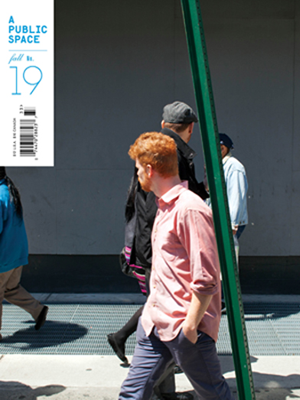Fiction
The Pear Tree
Goli Taraghi
Translated from the Farsi by the Author
Log in to read the rest.
If you are a subscriber but do not currently have online access, please contact us to link your subscription at subscribe@apublicspace.org
Not a subscriber?
Not yet a subscriber? Join us now, and become a part of the conversation.
About the author
Goli Taraghi was born in Tehran in 1939 and now lives in Paris, where she has been honored as a Chevalier de l’Ordre des Arts et des Lettres. W. W. Norton & Company will publish The Pomegranate Lady and Her Sons: Selected Stories this fall.
